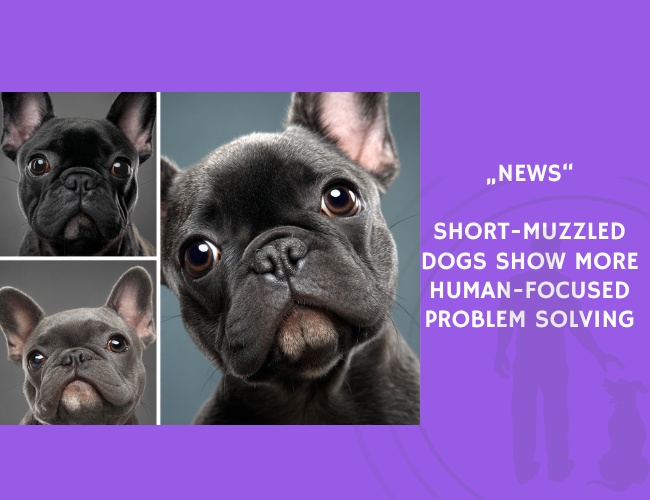A study in Scientific Reports compared the problem-solving performance of two brachycephalic breeds—English Bulldogs and French Bulldogs—with that of the mesocephalic Mudi. Led by D. Ujfalussy and colleagues, the research explored whether behavioural traits linked to paedomorphism extend beyond appearance.
Dogs were tasked with opening boxes containing food rewards while researchers measured success rate, latency, and attention focus. Both bulldog breeds were significantly less successful at solving the task and took longer to open the boxes compared to Mudis. Instead of concentrating on the problem, brachycephalic dogs oriented toward humans more frequently.
This human-focused behaviour may be interpreted by owners as “helplessness” or dependence, potentially strengthening emotional bonds. The findings suggest that infant-like behavioural traits—alongside physical “kindchenschema” features—could play a role in the enduring popularity of brachycephalic breeds despite their known health challenges.
The authors propose that understanding these behavioural tendencies is important for both welfare considerations and breed selection decisions, as reliance on human assistance may influence training and daily care needs.
Source: Ujfalussy, D., Bognár, Z., Molnár, M., Miklósi, Á., & Kubinyi, E. (2023). The difference between two brachycephalic and one mesocephalic dog breeds’ problem-solving performance suggests evidence for paedomorphism in behaviour. Scientific Reports, 13, September 21, 2023.










